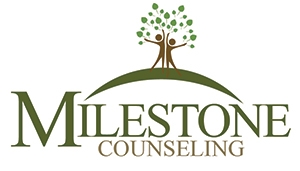Anxiety & Trauma Related Disorders
Adverse Childhood Experiences Survey (ACES)
Purpose: Identify types of childhood and adolescent traumatic experiences
Age Range: 6+
Scales: None
Attachment Checklist-Child
Purpose: Identify indicators of dysfunctional attachment styles
Age Range: 18 months-12
Scales: None
Attachment Checklist-Infant
Purpose: Identify indicators of dysfunctional attachment styles
Age Range: Birth-18 months
Scales: None
Beck Anxiety Inventory (BAI)
Purpose: Measures anxiety symptoms and severity
Age Range: 17-80
Scales: Anxiety
Clinician Administered PTSD Scale (CAPS)
Purpose: Assess the presence and severity of PTSD symptomology
Age Range: 15+
Scales: Re experiencing the trauma, avoidance & numbing, Hyperarousal, Lifetime diagnosis, Associated symptoms
Clinician Administered PTSD Scale for Children & Adolescent (CAPSCA)
Purpose: Assess the presence and severity of PTSD symptomology
Age Range:8-15
Scales: Re-experiencing trauma, avoidance & numbing, Hyperarousal, Lifetime diagnosis, Associated symptoms
Impact of Event Scale- Revised
Purpose: Assesses anxiety related effects of a recent traumatic event
Age Range: 12+
Scales: Avoidance, intrusion, Hyperarousal
Outcome Questionnaire-45 Version 2 (OQ-45.2)
Purpose: Screens for & assesses stressor & symptom presentation levels
Age Range: 18+
Scales: Symptom distress, Interpersonal distress, Social distress
Penn State Worry Questionnaire (PSWQ)
Purpose: Brief Screener to assess worry behaviors
Age Range: 12+
Scales: none
Personality Assessment Inventory (PAI)
Purpose: A comprehensive diagnostic & interpretive instrument
Age Range: 18+
Scales: 4 interpretive scales, 11 clinical scales, 7 trait scales, & 31 Sub scales
Personality Assessment Inventory-Adolescent (PAI-A)
Purpose: A comprehensive diagnostic & interpretive instrument
Age Range: 12-18
Scales: 22 non overlapping scales. 4 validity scales, 11 clinical scales, 5 treatment consideration scales, and 2 interpersonal scales. 10 scales contain derived subscales. 17 critical item responses.
State-Trait Anxiety Inventory (STAI)
Purpose: Differentiate between state and trait anxiety in high school students & adults.
Age Range: 14-69
Scales: 2 main scales: State & Trait, measuring apprehension, tension, nervousness, & worry.
State-Trait Anxiety Inventory for Children (STAIC)
Purpose: Measures anxiety in Children
Age Range: 9-14 (normed to test <9 w/ reading comprehension at/above 3rd grade)
Scales:2 main scales: State Anxiety & Trait Anxiety
Personality Inventory for Youth (PIY)
Purpose: Assesses emotional & behavioral adjustment, family interaction, & academic functioning
Age Range: 9-19
Scales: Cognitive impairment, Impulsivity/Distractibility, Delinquency, Family dysfunction, Reality distortion, Somatic concern, Psychological discomfort, Social withdrawal, Social skills deficit
Screen for Child Anxiety Related Disorders (SCARED)
Purpose: A brief screener to assess areas and levels of anxiety related issues and disorders in children
Age Range: 2-18
Scales: None
Stressful Life Experiences Screening
Purpose: Brief life experience stress screener
Age Range: 16+
Scales: None
Trauma & Attachment Belief Scale (TABS)
Purpose: Assesses long term impact of trauma
Age Range: 9+
Scales: Safety, Trust, Esteem, Intimacy, Control
Trauma Symptom Checklist for Children (TSCC)
Purpose: Helps evaluate acute & chronic posttraumatic symptoms
Age Range: 8-16
Scales: Anxiety, Depression, Anger, Posttraumatic Stress, Dissociation, & Sexual concerns
Trauma Symptom Checklist for Young Children (TSYCC)
Purpose: Provides a standardized, broadband trauma measure for very young children
Age Range: 3-12
Scales: Anxiety, Depression, Anger/Aggression, Posttraumatic stress-Intrusion, Posttraumatic stress-Avoidance, Posttraumatic stress-Arousal, Dissociation, Sexual Concerns
Traumatic Events Screening Inventory (TESI-PRR/ TESI-SRR)
Purpose: Probes for a history of exposure to traumatic events and to distinguish these events from other negative life experiences.
Age Range: 6-18 (parent report <7)
Scales: Single Scale Interview for PTSD criteria

 D5 Creation
D5 Creation